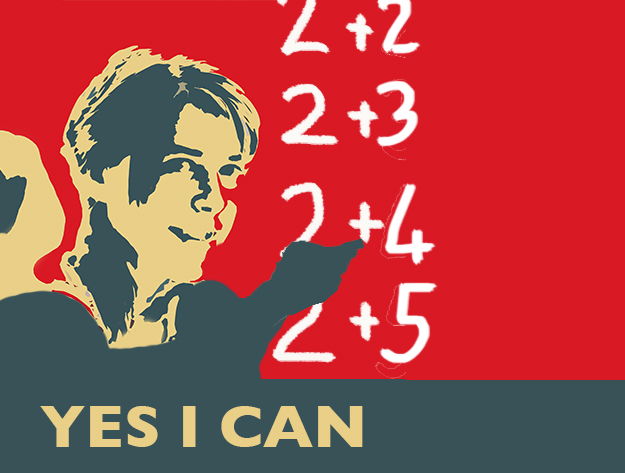Inre motivation positiv för elevers utveckling och lärande
DOI:
https://doi.org/10.3384/venue.2001-788X.1436Keywords:
Samspel kring elever och lärande, LärarutbildningAbstract
Har yttre belöningar (exempelvis guldstjärnor i kanten av skrivboken) en negativ inverkan på elevers inre motivation? Minskar intresset för människor att engagera sig i eller prestera väl i en uppgift när yttre belöningar erbjuds? Flera meta-analyser har visat att så är fallet. Self-Determination Theory (SDT) är en teori som såväl teoretiskt som praktiskt belyser hur lärare kan stödja elever för att öka deras inre motivation.
Full-text of the article is available for this locale: Svenska.
References
Bandura, A. (1997). Self-efficacy: The exercise of control. New York: Freeman.
Baumeister, R. F., & Leary, M. R. (2000). The need to belong: Desire for interpersonal attachments as a fundamental human motivation. I E. T. Higgins, & A. W. Kruglanski, (Eds.), Motivational science: Social and personality perspectives (pp. 24-49). New York, NY: Psychology Press.
Chirkov, V. I., Ryan, R. M., & Sheldon, K. M. (2011). Human autonomy in cross-cultural contexts: Perspectives on the psychology of agency, freedom, and well-being. Dordrecht: Springer.
deCharms, R. (1968). Personal causation: The internal affective determinants of behavior. New York: Academic Press.
Deci, E. L. (1971). Effects of externally mediated rewards on intrinsic motivation. Journal of Personality and Social Psychology, 18, 105-115.
Deci, E. L., Koestner, R., & Ryan, R. M. (1999). A meta-analytic review of experiments examining the effects of extrinsic rewards on intrinsic motivation. Psychological Bulletin, 125, 627-668.
Deci, E. L., & Ryan, R. M. (2000). The ”what” and ”why” of goal pursuits: Human needs and the self-determination of human behavior. Psychological Inquiry, 11, 227–268.
Jungert, T. & Koestner, R. (2014). Science adjustment, parental and teacher autonomy support and cognitive orientation. Educational Psychology (in press).
Reeve, J., Deci, E. L., & Ryan, R. M. (2004). Self-determination theory: A dialectical framework for understanding socio-cultural influences on student motivation. I D. M. McInerney & S. Van Etten (Eds.), Big theories revisited (pp. 31–60). Greenwich: Information Age.
Ryan, R. M., Koestner, R., & Deci, E. L. (1991). Ego-involved persistence: When free-choice behavior is not intrinsically motivated. Motivation and Emotion, 15, 185-205.
Schunk, D. H., Pintrich, P. R., & Meece, J. L. (2008). Motivation in education: Theory, research, and application (3rd ed.). Upper Saddle River: Pearson.

Downloads
Published
Versions
- 2025-08-05 (2)
- 2014-02-28 (1)
How to Cite
Issue
Section
Categories
License
Copyright (c) 2014 Jungert

This work is licensed under a Creative Commons Attribution-NonCommercial 4.0 International License.
 Unless otherwise stated, works from 2019 are licensed under a Creative Commons Attribution-NonCommercial 4.0 International License.
Unless otherwise stated, works from 2019 are licensed under a Creative Commons Attribution-NonCommercial 4.0 International License.

 Tomas Jungert är docent i psykologi. Han disputerade vid Linköpings universitet år 2009 och gjorde därefter sin post-doc vid McGill University, Montreal, Kanada. Hans huvudsakliga fokus är inom grupp- och socialpsykologi, och pedagogisk psykologi. Hans forskningsintressen rör bland annat motivation, självtillit, skolmobbning och empati. Tomas motivationsforskning utgår främst från Self determination theory och har bland annat belyst olika former av studiemotivation och betydelsen av lärares och föräldrars stöd för att öka studiemotivationen och självtilliten hos elever samt betydelsen av medarbetares stöd till varandra för att öka arbetsmotivation, engagemang och arbetstillfredsställelse. Forskningen om mobbning fokuserar främst på betydelse av empati, moraliskt disengagemang och självtillit för hur barn som bevittnar mobbning agerar i sådana situationer.
Tomas Jungert är docent i psykologi. Han disputerade vid Linköpings universitet år 2009 och gjorde därefter sin post-doc vid McGill University, Montreal, Kanada. Hans huvudsakliga fokus är inom grupp- och socialpsykologi, och pedagogisk psykologi. Hans forskningsintressen rör bland annat motivation, självtillit, skolmobbning och empati. Tomas motivationsforskning utgår främst från Self determination theory och har bland annat belyst olika former av studiemotivation och betydelsen av lärares och föräldrars stöd för att öka studiemotivationen och självtilliten hos elever samt betydelsen av medarbetares stöd till varandra för att öka arbetsmotivation, engagemang och arbetstillfredsställelse. Forskningen om mobbning fokuserar främst på betydelse av empati, moraliskt disengagemang och självtillit för hur barn som bevittnar mobbning agerar i sådana situationer. 


